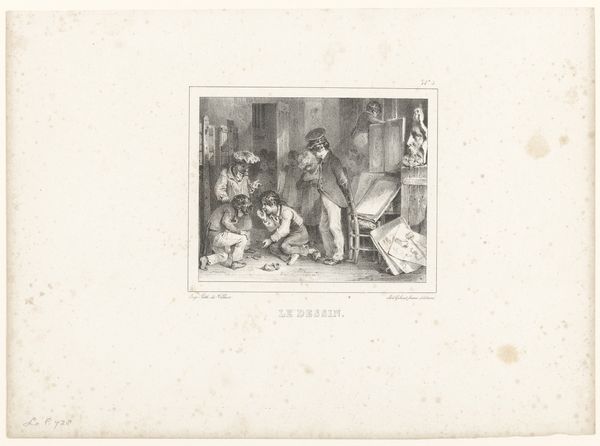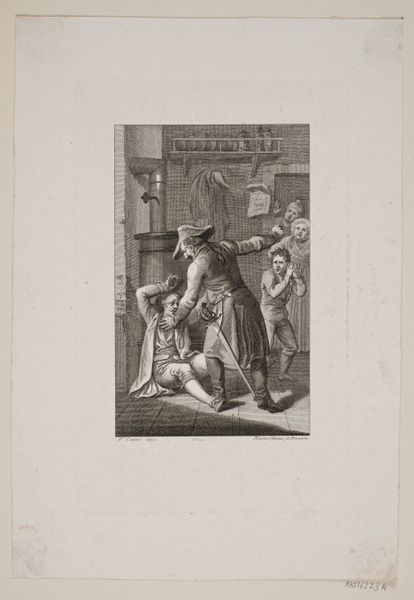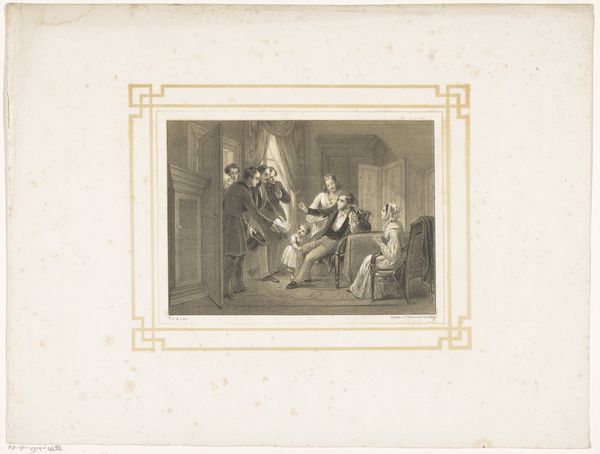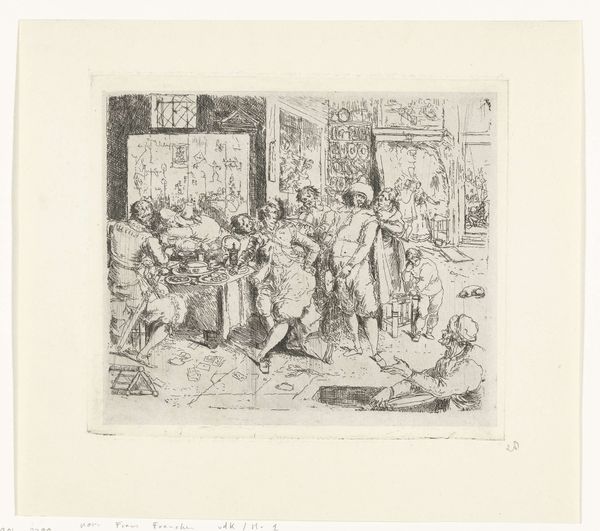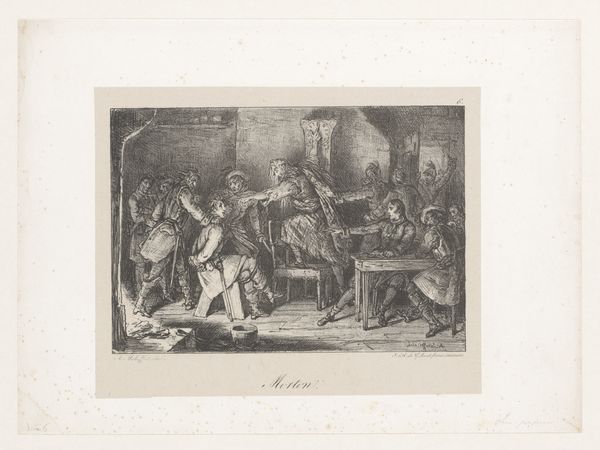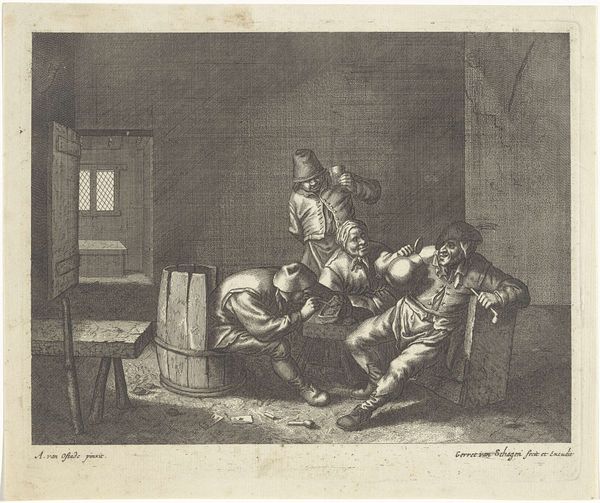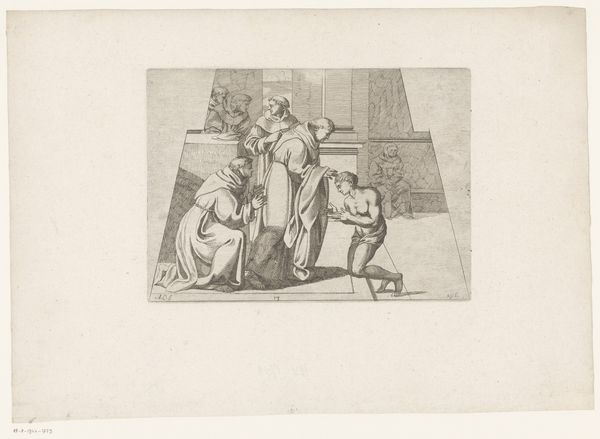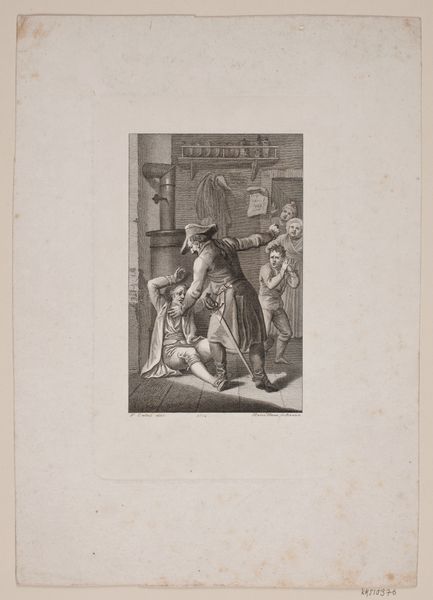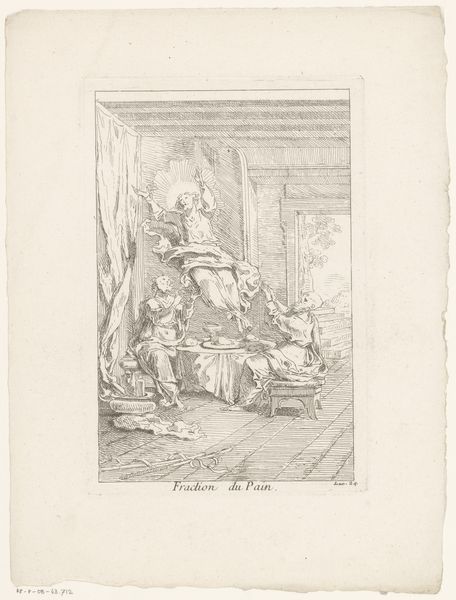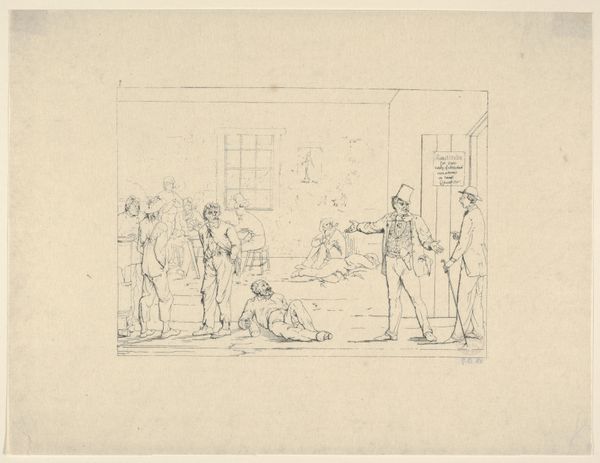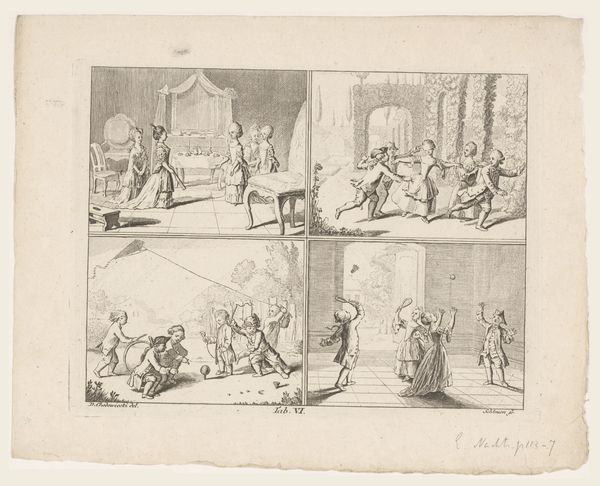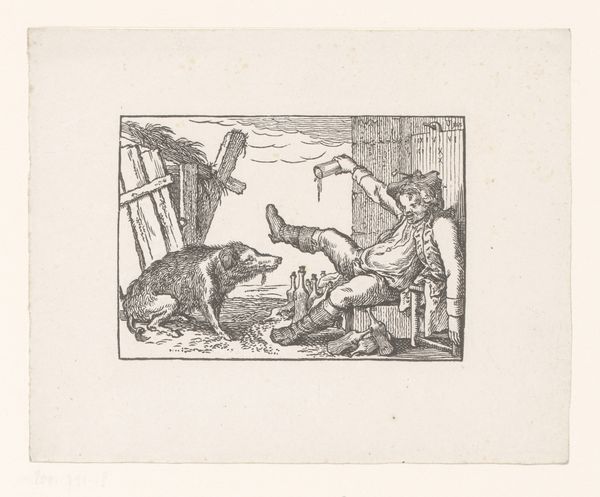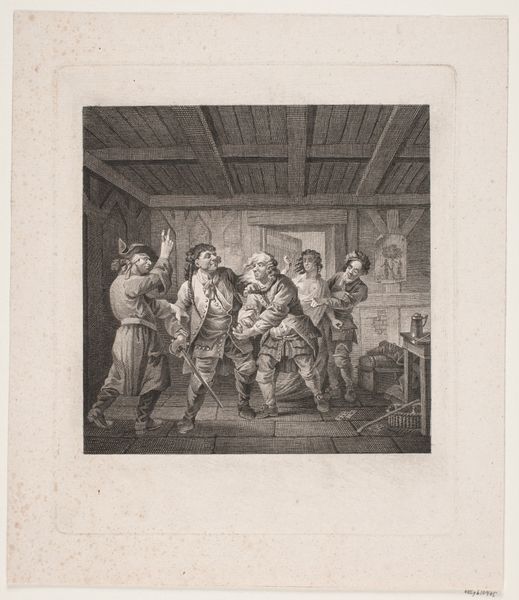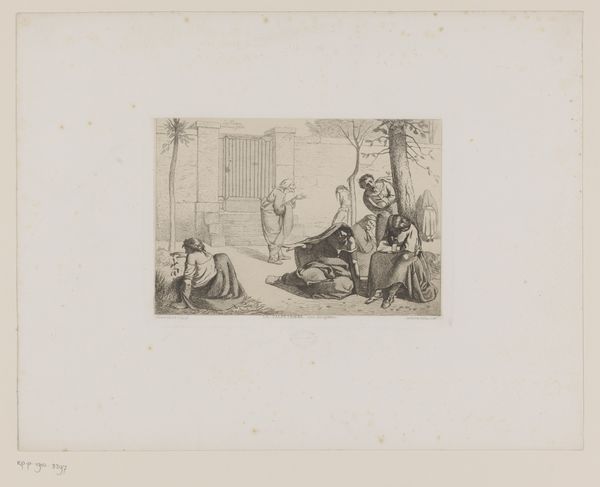
print, etching
#
portrait
# print
#
etching
#
genre-painting
Dimensions: height 131 mm, width 161 mm
Copyright: Rijks Museum: Open Domain
Auguste Numans made this etching, ‘Interior with four figures and ten cats,’ in the Netherlands, sometime in the mid-19th century. It depicts a bourgeois interior in which people and animals coexist, shall we say, uneasily. The image creates meaning through visual codes of class, evident in the dress, interior decoration, and even leisure activities, like smoking. But the profusion of cats upsets the expected order of things. We have a sense of a satirical inversion. Was Numans commenting on the social structures of his own time? Is it possible that he was critiquing the institutions of art? Were official salons too stuffy and self-important? The historian can help us to understand art like this, especially by researching relevant institutional histories. We can learn more about the meaning of art as something that is contingent on social and institutional context.
Comments
No comments
Be the first to comment and join the conversation on the ultimate creative platform.
